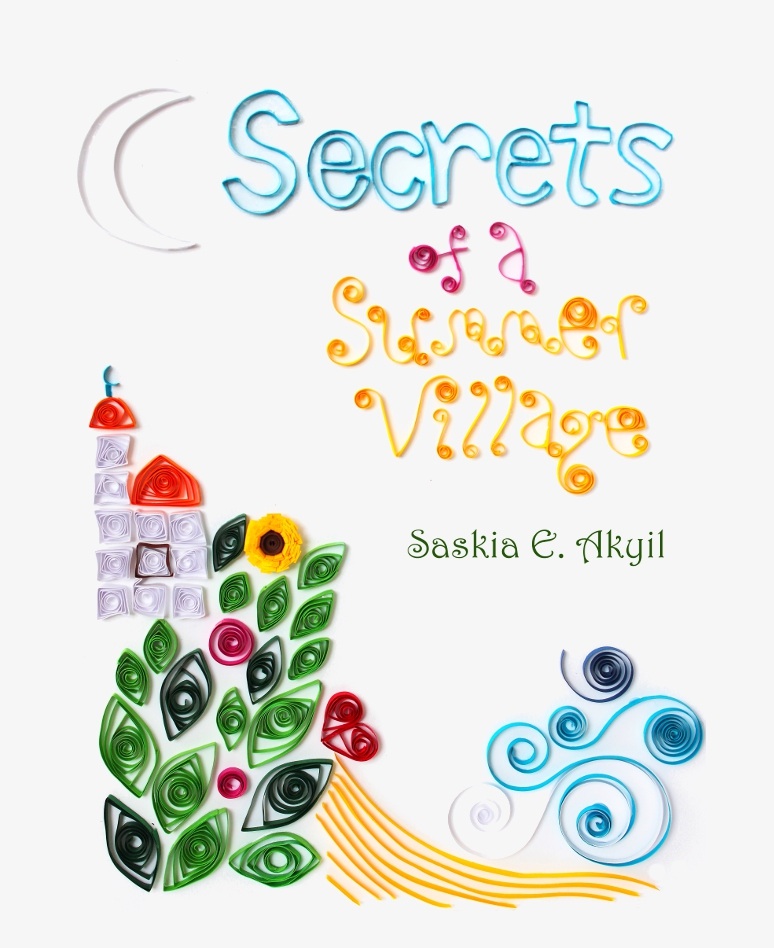 I recently met Saskia Akyil, a fellow American expat in Munich. She was giving a presentation on how she self-published a novel. Having had a mostly-finished novel living on my hard drive for years, I was impressed. Inspired, even. That book of mine just might see the light of day after all. One of these days.
I recently met Saskia Akyil, a fellow American expat in Munich. She was giving a presentation on how she self-published a novel. Having had a mostly-finished novel living on my hard drive for years, I was impressed. Inspired, even. That book of mine just might see the light of day after all. One of these days.
I asked Saskia if she’d be interested in guest posting on this blog, and to my delight she was happy to share some of her wisdom about life as an expat writer. Here’s what she had to say:
I had always wanted to write a novel, so I did. Once it was (self) published, I started hearing from other expats who:
- Wanted to write a book.
- Were in the process of writing a book.
- Had written a book.
Upon further thought, I realized that there are some pros and also some cons to trying to make a career of writing as an expat. I think that so many expats (especially trailing spouses) write because in many ways, it does make sense.
- It’s portable – you can do it anywhere, anytime, as long as you have a laptop, or a writing instrument and some paper… or papyrus.
- As expats, we have interesting, different experiences and perspectives, and can tell stories that have not already been told (at least not in the home country).
- Many of us don’t have good access to television we can understand, so that void is happily filled with more constructive activities, such as writing.
- The trailing spouses portion of expats have often left behind our careers, unable to find suitable work in our new locations, and writing helps fill the intellectual void.
The above are all excellent reasons to write if you’re an expat and so inclined. But there cannot be advantages without disadvantages. What makes it more difficult to write as an expat? These difficulties do not crop up until we try to publish and market our work:
- If you have written your book but not yet had it published, it can be expensive to send query letters and manuscripts to agents and publishers in your home country. There are many agents and publishers who accept electronic queries, but there are just as many who don’t.
- If the country you live in does not use the same language as you write in, you may have a difficult time organizing bookstore readings. If you’re American and you write in the US, you can stop by independent bookstores in your region and organize readings of your book to attract buzz and generate sales. If you live in a country where English is not a main language, you may be lucky enough to have one or two English bookstores in your region… once you’ve spoken there, your book “tour” is over (unless you spend a lot of time and money traveling to English-speaking areas).
- Time zone differences can be killers. My former “hometown” has a 9-hour time difference with my current hometown. That makes it very difficult for me to call newspapers and other possible publicity sources to organize marketing efforts.
- Taxes – once you start actually selling your book, your taxes will become more complicated.
- Finally, removal from your native culture, which is a pro, is also a con. You may eventually lose touch with trends, linguistic nuances and expressions, as well as losing touch with what is interesting to people in your native culture.
Unfortunately, there are as many cons as there are pros. But if writing appeals to you, by all means write. Writing has become a very important part of my own expat life, and I hope it continues to do so.
Saskia E. Akyil is originally from Atlanta, Georgia, and currently lives near Munich, Germany, where she spends entirely too much time writing. Her recently published novel, Secrets of a Summer Village, is available in electronic and paper versions at online booksellers worldwide.
I think everyone has at least one book to write. The difference between published writers and the others is dedication, hard work and perseverance. Thanks for the insight.
Interesting idea, German Gems. I agree, the main difference between those who become published authors and those who don’t is that the first group bothers to take the steps required to make it happen. The same can be applied to professional artists, I’m finding.